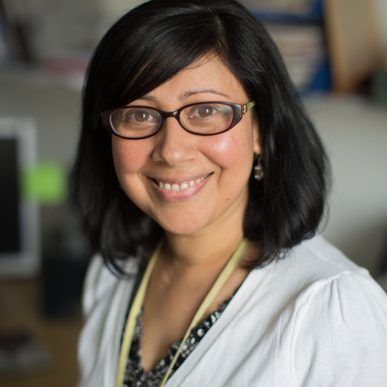Najma Latif obtained a BSc (Hons) in cell and molecular biology from the university of Essex and a PhD from the University of London in autoimmunity in heart diseases and cardiac transplantation. She was appointed a lecturer with Imperial College in 2000 and currently works as a research fellow at the MYI with an honorary position at Imperial College. She has been a principal investigator holding a grant from the BHF. Her main areas of research are in human valve biology, pathology and valve tissue engineering.
My area of focus is the biology and pathobiology of human heart valves. The valve leaflet has a unique layered distribution of extracellular components that provide it with strength and elasticity and impart vital signals to the resident interstitial cells. The valve interstitial cells and endothelial cells are unique cell populations and play vital roles in the homeostasis of the valve and we are characterising their phenotype and behaviour under normal conditions and also under diseased conditions to elucidate the pathways that are dysregulated. Calcification of the aortic valve affects up to 40% of those aged 60 or over and 75% of those aged over 85 and is an active process involving differentiation of the resident cells. Understanding this process and the regulators is vital for tailoring therapy.
Tissue engineering has the potential to create functional endogenous, restorative heart valves that can recapitulate the sophisticated function of the native valve. We are using a biodegradable polymer to produce a functional scaffold capable of attracting, capturing, and instructing cells through structural and mechanical cues. Our 3 month explants show repopulation of the valve scaffolds with a heterogeneous population of cells and remodelling of the scaffold with extracellular matrix components, particularly collagens.



